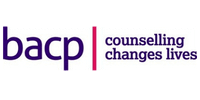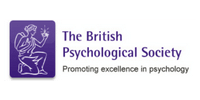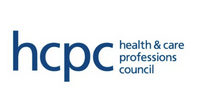Eating Disorders
Eating disorders are a range of psychological conditions that cause unhealthy eating habits to develop. They might start with an obsession with food, body weight, or body shape.
In severe cases, eating disorders can cause serious health consequences and may even result in death if left untreated.
Although eating disorders can affect people of any gender at any life stage, they’re most often reported in adolescents and young women. In fact, up to 13.2% of girls experienced at least one eating disorder by the age of 20 in a study that followed 496 girls for 8 years Stice E, Marti CN, Shaw H, and Jaconis M. (2010). However, eating disorders are not only experienced by young women, men also experience eating disorders and represent 25% of people with anorexia and are in fact at a higher risk of dying form the condition partly because males are often diagnosed later than females as well as the social assumption that eating disorders are a challenge only experienced by females.

What is an Eating Disorder?
An eating disorder is a psychological condition in which an individual develops unhealthy eating habits, such as obsessing over food, body weight, or body shape.
In more severe cases, eating disorders can cause serious health consequences and even result in death if left untreated.
There are several different types of eating disorders, including bulimia nervosa, anorexia nervosa, and binge eating disorder.
What are the Symptoms of an Eating Disorder?
The symptoms of an eating disorder vary depending on the type of disorder.
If you suspect that you or someone you know may be experiencing an eating disorder, there are a few key signs to look out for. However, common symptoms include:
- preoccupation with food,
- body weight, or body shape
- abnormal eating habits
- excessive exercise, and
- extreme weight loss or gain.
Other symptoms may include fatigue, anxiety, depression, and social isolation.
If you notice any of these signs, it is important to seek professional help as soon as possible.
Causes of Eating Disorders
There is no single cause of eating disorders. However, they are often associated with psychological factors such as low self-esteem, perfectionism, and a need for control.
Eating disorders may also be triggered by physical or emotional trauma, as well as genetic and biological factors.
If you suspect that you or someone you know may be experiencing an eating disorder or disordered eating, it is important to seek professional help as soon as possible.
Treatment options typically include a combination of therapy, nutritional counselling, and medication, depending on the severity of the condition and other individual factors.
Types of Eating Disorders
Some of the most common eating disorders include anorexia nervosa, bulimia nervosa, binge eating disorder and avoidant/restrictive food intake disorder (ARFID). Each of these disorders affects individuals in different ways, but they all share a common underlying cause: dissatisfaction with one’s body or appearance.
Anorexia Nervosa
People with anorexia:
- eat very little on purpose, leading to very low body weight,
- have an intense fear of weight gain and fear of looking fat
- have a distorted body image and can see themselves as fat even when they are not.
People with anorexia are very strict about what and how much they will eat. They may think about food or calories almost all the time.
To lose weight, some people with anorexia fast or exercise too much. Others may use laxatives, diuretics, or water pills to get rid of water weight or food they have eaten. Some people with anorexia throw up what they have eaten (purging).
Anorexia can lead to dangerous health problems, such as:
- severe weight loss
- low blood pressure
- irregular heartbeat
- malnutrition
- organ damage
Anorexia is most common in girls and women, but it can affect boys and men, too.
Bulimia Nervosa
People with bulimia:
- eat a lot of food in a short period of time (bingeing) and then purge
- feel out of control when they are bingeing
- have a distorted body image and see themselves as fat even when they are at a healthy weight.
People with bulimia often feel ashamed or embarrassed about their eating habits. They may try to keep their binges and purges a secret.
To purge, people with bulimia may vomit, use laxatives or diuretics, take enemas or stack weight-loss drugs.
Bulimia can lead to dangerous health problems, such as:
- damaged stomach
- acid reflux/heartburn
- thin bones (osteoporosis)
- cavities and tooth decay
- dehydration
- irregular heartbeat
- kidney problems.
Binge eating disorder
People with binge eating disorder:
- eat a lot of food in a short period of time and feel out of control when they are bingeing
- have feelings of guilt, shame, or disgust after a binge eat even when they are not hungry
- feel like they cannot stop eating or control how much they eat.
Binge eating disorder is the most common type of eating disorder. It affects more men than women.
Avoidant/restrictive food intake disorder (ARFID)
People with ARFID:
- avoid foods or restrict how much they eat because of a lack of interest
- a dislike for the taste or smell of certain foods (i.e., picky eating that progressively worsens)
- or factors that may make food unpalatable (e.g., feeling sick to their stomach).
People with ARFID do not have an unhealthy body weight like those with other eating disorders. But they may have nutritional deficiencies or problems getting all the nutrients and calories they need.
Treatment for Eating Disorders
There is no single treatment that works for all eating disorders. However, most treatments involve a combination of therapies, nutritional counselling, and/or medication to address the underlying psychological factors that contribute to disordered eating habits.
If you think you may be suffering from an eating disorder or disordered eating, it is important to seek professional help as soon as possible. With the right treatment and support, it is possible to recover from an eating disorder and live a healthy, fulfilling life.
Getting Support for an Eating Disorders
If you or a loved one is suffering from an eating disorder, it is important to seek professional help as soon as possible. Treatment options typically include therapy, nutritional counselling, and medication, depending on the severity of the condition and other individual factors.
With proper care and support, it is possible to recover from an eating disorder.
Talking Therapies
Talking therapies are a key part of treatment for an eating disorder. They can help you understand the thoughts and behaviours that contribute to your disorder and develop healthier coping mechanisms.
Cognitive behavioural therapy (CBT)
CBT therapy for eating disorders is one type of talking therapy that has been shown to be particularly effective in treating eating disorders.
Nutritional Counselling
If you have an eating disorder, nutritional counselling can help you develop healthier eating habits and learn how to build a balanced diet. This may include guidance on how to incorporate vitamins and minerals into your diet and the optimal number of calories needed for weight gain or weight loss, depending on your unique situation.
Medication
Medications may also be used to treat certain associated conditions, such as depression or anxiety, that can contribute to a person’s eating disorder. There are also some medications specifically approved for the treatment of certain eating disorders, including selective serotonin reuptake inhibitors (SSRIs) and other types of antidepressants.
Nutritional Therapy
Nutritional Therapy is also an important part of treatment for eating disorders. By working with a Registered Dietitian, you can develop healthy eating habits and learn how to manage food-related emotions in a safe and supportive environment.
Support groups
Support Groups can also be an important part of your recovery from an eating disorder. Many people find it helpful to connect with others going through similar struggles, as well as share their experiences and advice.
Alinea Psychologies offers support and resources for individuals with eating disorders, as well as their families and loved ones. We can provide information about treatment options, how to find a therapist or nutritionist, and how to get involved in the eating disorder community.
If you are struggling with an anxiety disorder, it is important to seek professional help. There are many resources available to help you get the treatment you need.







